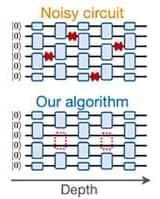Popular Summary.
Unequivocally demonstrating that a quantum computer can significantly outperform any existing classical computers will be a milestone in quantum science and technology. Recently, groups at Google and at the University of Science and Technology of China (USTC) announced that they have achieved such quantum computational advantages. The central quantity of interest behind their claims is the linear cross-entropy benchmark (XEB), which has been claimed and used to approximate the fidelity of their quantum experiments and to certify the correctness of their computation results. However, such claims rely on several assumptions, some of which are implicitly assumed. Hence, it is critical to understand when and how XEB can be used for quantum advantage experiments. By combining various tools from computer science, statistical physics, and quantum information, we critically examine the properties of XEB and show that XEB bears several intrinsic vulnerabilities, limiting its utility as a benchmark for quantum advantage.
Concretely, we introduce a novel framework to identify and exploit several vulnerabilities of XEB, which leads to an efficient classical algorithm getting comparable XEB values to Google’s and USTC’s quantum devices (2% 12% of theirs) with just one GPU within 2 s. Furthermore, its performance features better scaling with the system size than that of a noisy quantum device. We observe that this is made possible because the XEB can highly overestimate the fidelity, which implies the existence of “shortcuts” to achieve high XEB values without simulating the system. This is in contrast to the intuition of the hardness of achieving high XEB values by all possible classical algorithms.









Comments are closed.